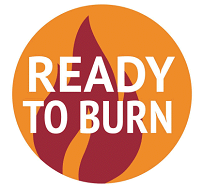Smoke Control Areas
Smoke Control Areas (sometimes called Smokeless Zones) are declared by local authorities in order to control the types of fuel that can be burnt on heating appliances in buildings. The aim is to prevent air pollution that affects the environment and can have a serious impact on health. In February 1952 over 4000 people died in a five day period in the London smog attributed mainly to the burning of coal.
What is a smoke control area
Only smokeless fuels (anthracite, semi-anthracite, electricity, gas and low volatile steam coal) can be burnt on heating appliances in buildings, unless the particular appliance is exempted by law to burn other fuel.
It’s illegal to sell and buy unauthorised fuel for use where a smoke control order applies, unless it’s for an exempt appliance, in:
- a building
- a fireplace
- a fixed boiler or industrial plant
- a moored vessel, for example canal boats, if you’ve included these in your smoke control area (unless the fuel was used to move it or provide it with electric power)
Retailers are required to take action to inform customers about these rules, for example, by putting a sign next to the fuels or tills, or a message when paying online.
To find out more about smokeless solid fuels, approved coal merchants, approved heating appliances and general advice about smoke control you may wish to visit the Defra smoke control guidance.
If smoke is emitted from your chimney because unauthorised fuel is being burnt then the Council may take legal action against you under the Clean Air Act 1993.
Smoke control areas
Smoke Control Areas are located within areas of Crewe, Wilmslow, Handforth and a small area of Disley, and are available to view on our smoke control area map.
Please note, when viewing the map, Smoke Control Areas are shaded grey. Further information can be obtained by clicking the shaded area.
Restrictions on the sale of firewood, manufactured solid fuels and coal sold for combustion in domestic premises
The Air Quality (Domestic Solid Fuels Standards) (England) Regulations 2020 place restrictions on fuel sold for combustion in domestic premises:
- Firewood sold in units of less than 2 cubic metres must be certified by the Ready to Burn Scheme and the certification details and scheme logo (image below) must be attached to the packaging and clearly displayed at the point of sale.

- If firewood is sold in units of more than 2 cubic metres, customers must be provided with information that explains how to dry, store and check the moisture of the wood before it is used.
- All manufactured solid fuels must be certified by the Ready to Burn Scheme and the certification details and scheme logo must be attached to the packaging and clearly displayed at the point of sale. Fuels that are exempt from these certification requirements are coffee logs, olive logs, wine logs and fuels mostly made of wheat husks, straw, miscanthus, bamboo or compressed food waste.
Further information is available from the Department for Environment, Food and Rural Affairs (Defra) and the Ready to Burn Consumer web page.
Nuisance and Planning Law
Regardless of whether or not you live in a smoke control area, if you intend to install a solid fuel appliance you need to be mindful of the effect the emissions may have on neighbours.
In particular, if the appliance is to be connected to a low level flu / chimney there is a possibility the smoke could cause a nuisance to neighbouring properties. If the chimney is new (or planned as part of a property extension) you may also require planning permission.
You should consider carefully if the smoke from the appliance is likely to cause a nuisance, and speak with your neighbours about your intentions.
Contact us
Page last reviewed: 02 September 2025
Thank you for your feedback.